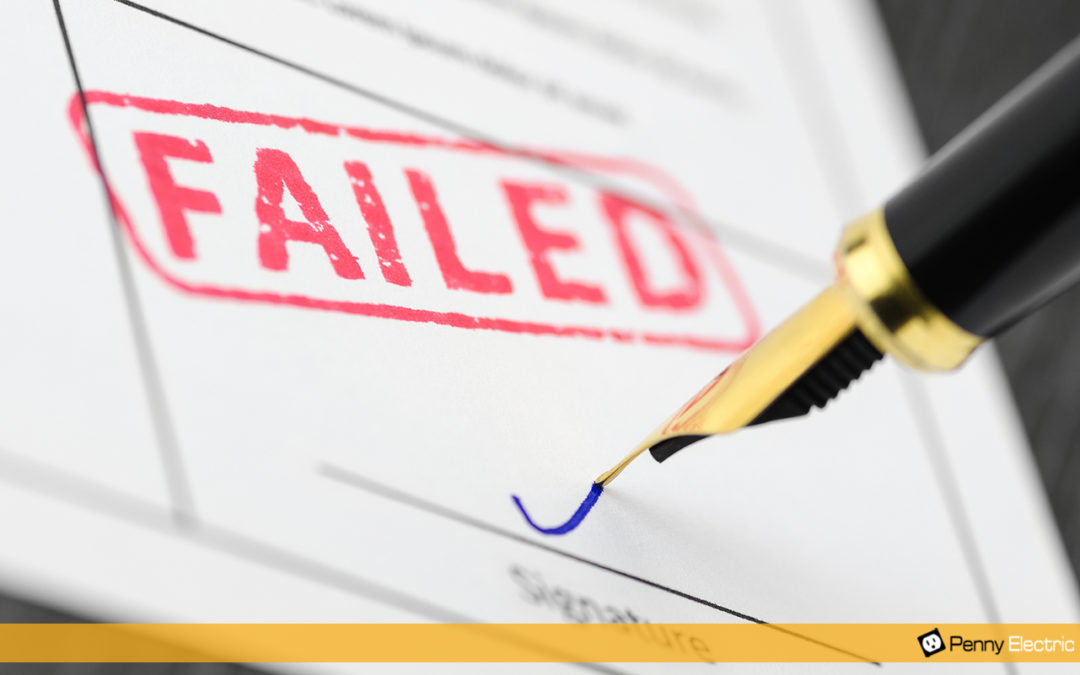If you have had significant electrical work done, then you will almost certainly need an electrical inspection. These inspections are required by state and federal law and are designed to ensure your own safety.
What Kind of Work Needs an Inspection?
Generally, an inspection is required any time new wiring is being laid. Precise details vary from state to state. In Nevada, inspections are required for:
- Partial or complete construction, including additions.
- Distribution panel replacement.
- Partial or complete conversion from gas to electric or electric to gas.
These required inspections have to be conducted by an approved technician, and generally your county will send somebody. There are also approved third-party inspectors. You should consider getting an inspection for any significant electrical work even if it is not required, as this can help you have peace of mind that the work was done correctly and safely.
Why Might it Fail Inspection?
There are a number of reasons why electrical work done on your home might fail inspection. Some of the most common are:
- Lack of GFCI protection on outlets in kitchens, bathrooms, or other areas where water might be involved.
- Exposed wiring or open-sliced wires. This is not something any competent electrician would do, and is often a problem when people attempt to DIY.
- Insufficient outlets requiring excessive use of extension cords and adapters.
- Over-fused circuits.
- Lack of tamper-resistant outlets.
- Inconsistent outlet and switch heights. For example, switches should be about 48 inches above the ground unless the room is intended to be used by a child or a wheelchair user. People expect switches to be a certain height.
- Incorrect cable anchoring.
- Improper grounding of electrical system.
Bear in mind that any problems of this nature in the inspected area can potentially cause the inspection to fail, even if they’re only adjacent to the work done. This is particularly an issue with tamper-resistant outlets, which only became a code requirement in 2014.
Overall, though, the root cause of a failed inspection is most often trying to do it yourself or hiring an unlicensed electrician.
What to Do if the Work Fails Inspection?
First of all, any competent licensed electrician will come back and fix anything which failed. If the inspector is unclear on the reasons for the failure, an electrician can generally find them. In addition, ideally, you should have asked for a warranty. A warranty will cover the costs of any repairs to fix an inspection failure (as well as any other problems that might come out soon after installation; you should always ask for a warranty).
If, however, your initial electrician is unwilling to do so, trying to charge you extra, or if you are unhappy with their work, then you will need to hire somebody else. If you did the work yourself, this is time to break down and hire a professional.
Get bids from other electricians and tell them the initial work failed code and, if you know, why. A good electrician will come in and fix all of your problems. Be particularly careful who you choose. Once you have the work redone, you will have to request another inspection. Bear in mind that in many places, including Clark County, penalties may be assessed if the inspection fails again. The penalty is currently $105, which is not a huge amount, but still more than you want to have to deal with.
Note that you should not use the circuits (or occupy the space in the case of an addition) until it has passed inspection, and should ideally keep power off to that area. Many code violations are about fire prevention. The best way to avoid a failed inspection is to be careful who you hire in the first place and always have electrical work done by a licensed electrician.
If you have work that has failed inspection and are not happy with the response of your contractor, contact Penny Electric today. We can fix the problem and help get your new wiring up to code.
